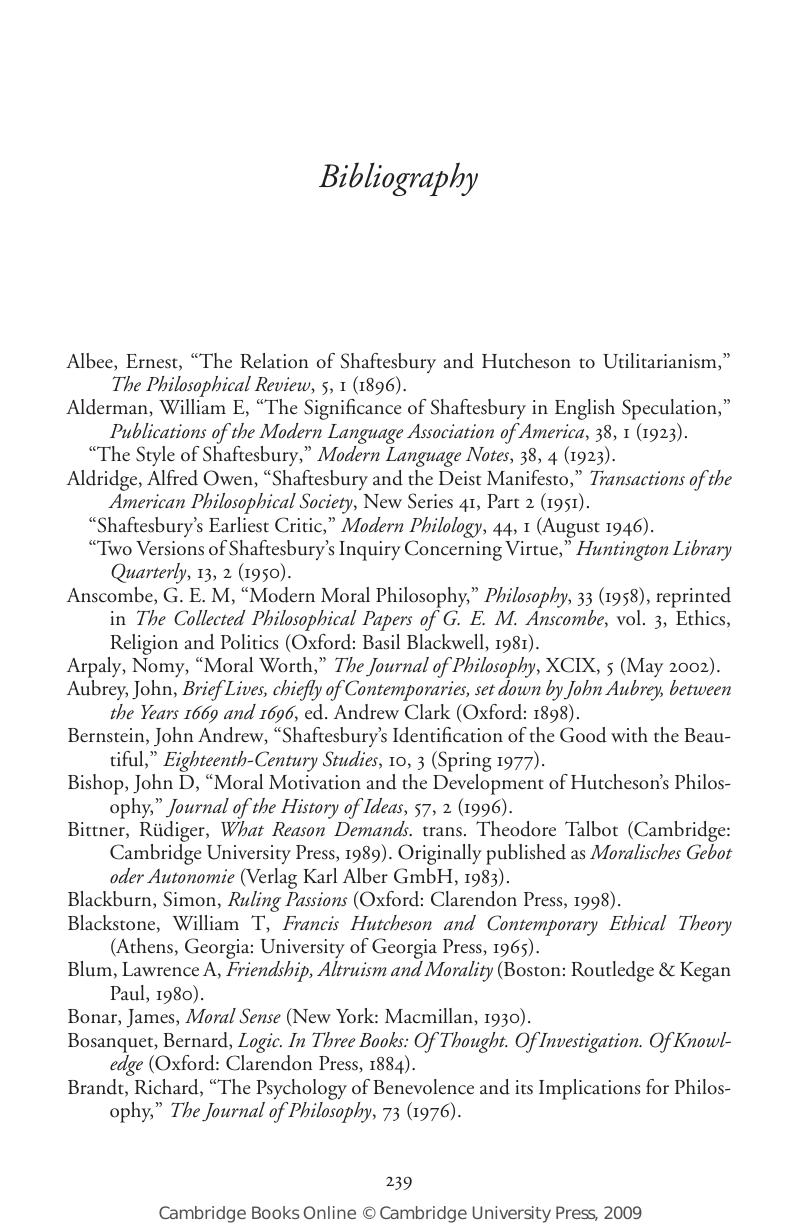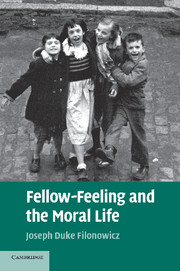Book contents
- Frontmatter
- Contents
- Preface
- Chapter 1 Fellow-feeling and ethical theory: the British sentimentalists
- Chapter 2 Ethical sentimentalism revisited
- Chapter 3 Shaftesbury's ethical system
- Chapter 4 Hutcheson's moral sense
- Chapter 5 What do we perceive by moral sense?
- Chapter 6 C. D. Broad's defense of moral sense theories in ethics
- Chapter 7 What is innate in moral sense?
- Bibliography
- Index
- References
Bibliography
Published online by Cambridge University Press: 22 September 2009
- Frontmatter
- Contents
- Preface
- Chapter 1 Fellow-feeling and ethical theory: the British sentimentalists
- Chapter 2 Ethical sentimentalism revisited
- Chapter 3 Shaftesbury's ethical system
- Chapter 4 Hutcheson's moral sense
- Chapter 5 What do we perceive by moral sense?
- Chapter 6 C. D. Broad's defense of moral sense theories in ethics
- Chapter 7 What is innate in moral sense?
- Bibliography
- Index
- References
Summary

- Type
- Chapter
- Information
- Fellow-Feeling and the Moral Life , pp. 239 - 245Publisher: Cambridge University PressPrint publication year: 2008



